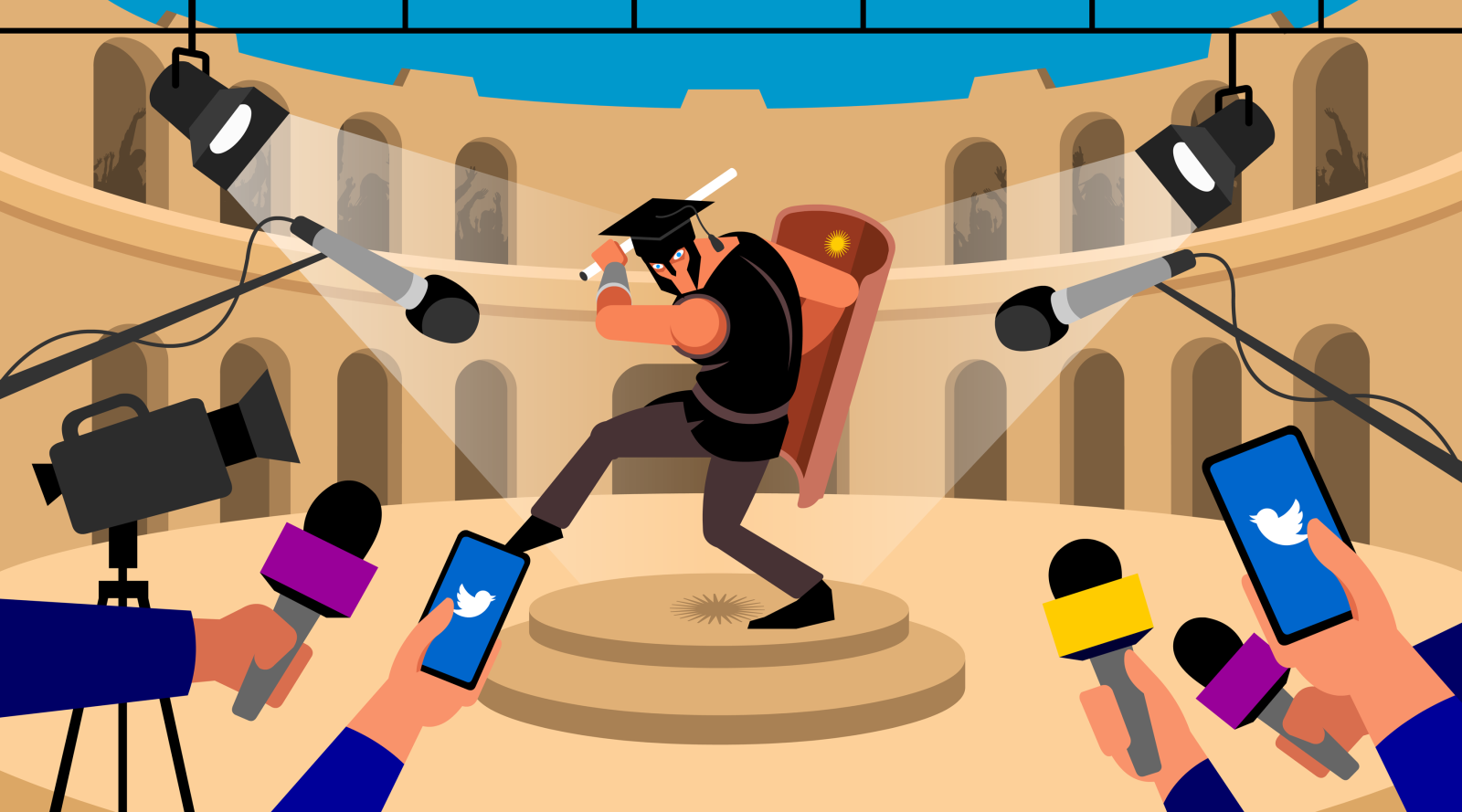In practice: Academics in the Public Arena
Engaging in public debate is important and offers opportunities for researchers, but there are also inherent risks. For example, you need to be prepared for angry reactions – sometimes from unexpected quarters – when you are dealing with difficult issues. This prompted Utrecht University to organise the “Academics in the Public Arena” programme. This interactive series features researchers and support staff discussing their role in the public debate and explaining what it takes to do so effectively and safely. The series is being organised by Sicco de Knecht and Sake Slootweg from Utrecht University’s Open Science Programme, press officer Iris Kruijen and Stephanie Helfferich from the Centre for Science and Culture.

“I was invited to moderate a session with high-profile Utrecht University researchers. The rector wanted to exchange ideas on the ground rules for public interactions. As the Open Science Programme, the Communications department and the Centre for Science and Culture immediately recognised, that debate touched on a broader theme: how does greater civic engagement – one of the aims of Open Science – affect your role as an academic in the public arena?
Since that role can take many forms, we do not believe it wise to introduce any rigid rules. It is more important to give academics a theoretical framework and the opportunity to gain experiences and learn from others. That way, they can make informed decisions.
As we noticed during the sessions, each and every colleague had had similar experiences. These ranged from positive experiences to less pleasant ones. We believe it can be useful for our colleagues to reflect on that. It gives them the sense that they're not alone."
Sicco de Knecht is programme coordinator at the Open Science Programme
As we saw in the exchange between highly experienced and less experienced researchers, some colleagues will climb any stage without a second thought, while others need to carefully consider whether the audience, guests and topic are a good fit. The majority of the experiences they shared turned out to be positive and sometimes even enviably creative and exciting, although the – much less common – negative stories of threats and online trolls had a big impact. I was glad to hear that Utrecht University offers help – legal aid and a listening ear where necessary – in these kinds of situations. If you're curious how others learn from their experiences or are feeling unsure about your role as an academic in the public arena, I highly recommend signing up for the next series.
I attended the meetings in this series because I'm interested in communicating scientific knowledge to the general public. I loved the constructive and open atmosphere and the focus on participants' personal experiences. The group was also really diverse, which was a huge plus: it ranged from people with lots of media experience to others who were mainly interested in how it all works, from Humanities to Medicine researchers and from assistant professors to communication department staff.
Harassment hotline
"As press officers, we were getting more and more signals from academics who suffered unpleasant experiences after sharing their insights on social or other media. As it turned out, they had trouble finding the support they needed. We decided to team up with colleagues from the press office, security, legal affairs and HR – as well as external parties such as the police – in order to address that situation. This resulted in the establishment of the 'media harassment hotline' in the autumn of 2021, which employs experts from all those departments. The hotline also cooperates with the national Safe Science reporting centre. There's always room for improvement, but we've managed to help about 15 people with their problems since then.
Iris Kruijen is press officer and spokesperson at Utrecht University
As a researcher who's done quite a lot of media appearances, I thought it was really valuable to exchange experiences with my colleagues. It's a great platform to exchange tips and reflect on the role academics can and want to play in the public arena.
When I coach researchers about press appearances, it's important for me to know what issues they run into. I learnt a lot about that during this series by exchanging experiences with colleagues from different disciplines. As a press officer, that's really valuable knowledge. You never really know what kind of responses you're going to get when you discuss your research in the media. Communicating with the outside world is interesting and exciting, but you also tend to feel vulnerable. As a press officer, I think it's really important to be aware of that and factor it into the advice you give.
Text: Stephanie Helfferich

